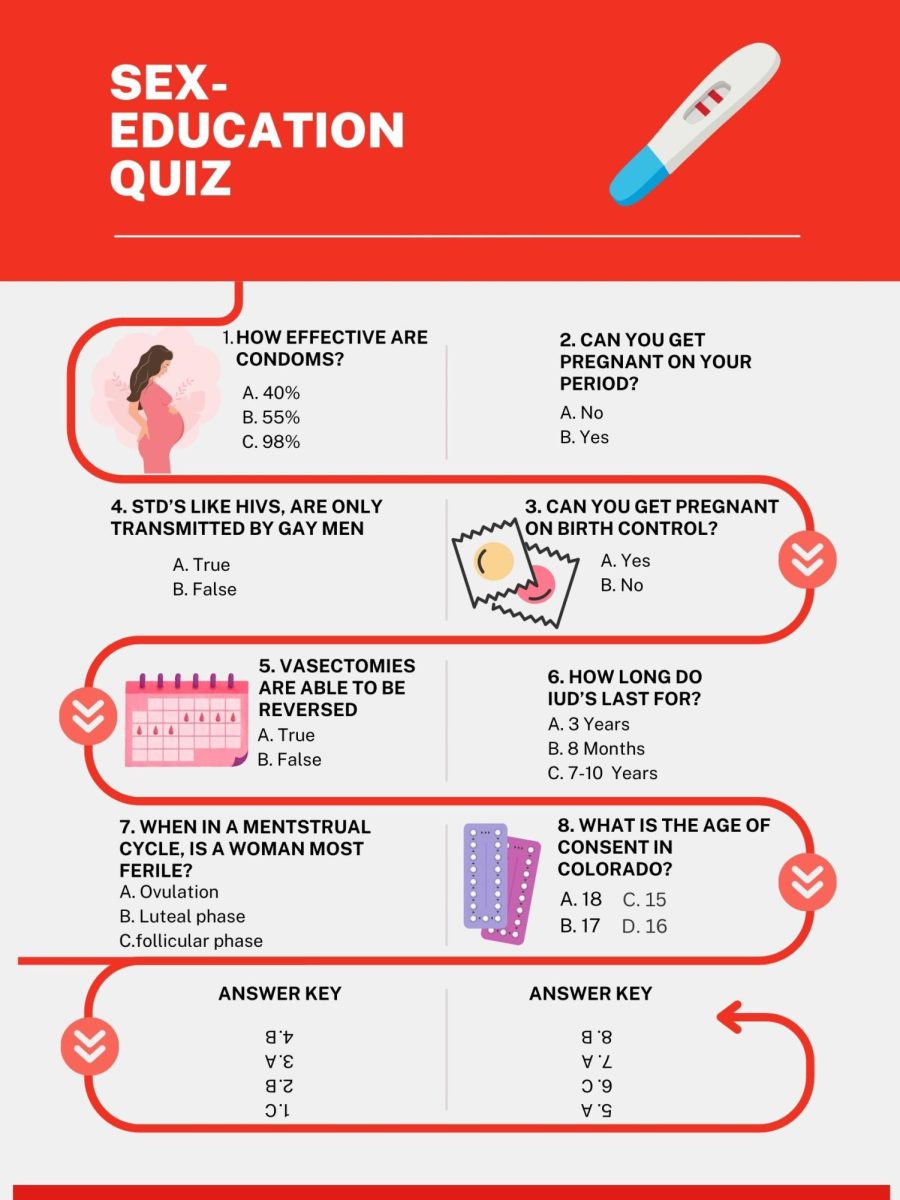Sex-ed has always been a big debate in public schools, with the disapproving parents and uncomfortable students, resulting in thousands of students lacking this life-altering knowledge.
Creek needs to separate sex-ed and health class, maintaining both as graduation requirements.
Sex-ed, short for sexual education, is commonly taught in middle and high schools. Kids are taught about safe sex, pregnancy prevention, sexually transmitted diseases (STDs), and consent. Students tend to feel uneasy in these classes, but sex-ed is valuable information that they won’t learn anywhere else, and shielding kids from uncomfortable content shields them from fundamental knowledge.
Colorado law doesn’t require schools to offer sex-ed courses, but if taught, curriculum must be comprehensible and include equal information about all sexual and gender identities. Parents are permitted by law to opt their children out if they are weary about sex-ed classes.
Five out of seven school districts in the Denver-metro area, including Boulder Valley, Denver Public Schools, Jefferson County, Aurora Public Schools, and Cherry Creek Schools do teach sexual education, while Douglas County and Littleton Public Schools have not provided any information regarding their curriculum.
According to health and physical education teachers Holly Lane and Allison McKean, CCSD’s health curriculum teaches two weeks of sex-ed, including healthy and unhealthy relationships, sexual assault and harassment, sexually transmitted infections (STIs), contraception, and birth control. All Creek students must complete a half credit, or one full semester, of health class in order to graduate, or they can take interpersonal relationships and culinary arts, two semester long classes, to complete their health credit.
For students who take health, two weeks isn’t long enough to thoroughly teach kids about their sexual well-being, especially when it completely skips over less discussed topics. All of the components deserve in-depth, detailed lessons rather than the abridged version.
The new sex-ed course could be offered in person or online, both containing in-depth lessons. Students whose religious beliefs, personal safety, or guardians’ preferences contradict with topics discussed within sexual health should be permitted to opt out, through a process involving counselors and guardians.
The combination of interpersonal relationships and culinary arts should not be able to waive either health or sex-ed, as both are necessary for students to live safely and healthily.
Accessibility to this education early in life is crucial to stable mental and physical health, and to our pursuit of careers and higher education. STDs, especially HIV, hepatitis, and HPV, are incurable, possibly leading to cancer, organ damage, and other harmful diseases. Pregnancy completely alters the lives of all people, but affects teenagers and young adults the most. In teaching content that can inform students of these life-changing events, Creek will be preparing them for more than just secondary education.
Students come from all different backgrounds, and go through life differently. For all students, the very real risk of sexual disease and unwanted pregnancies bars us from reaching full potential- the potential that could have become a reality if our education was fortified.








